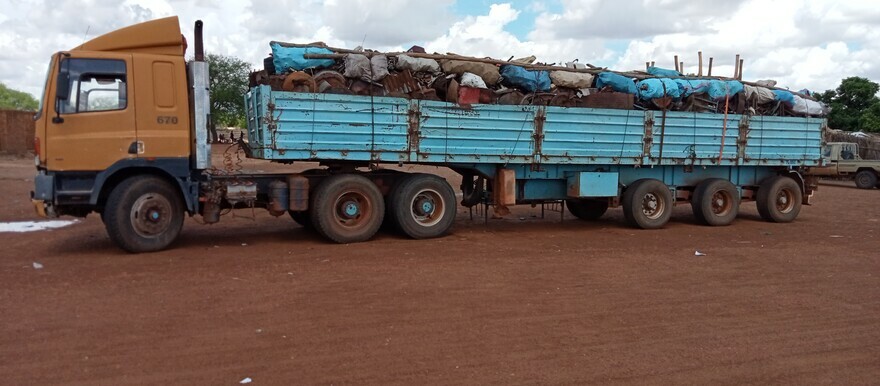The Meiram-Aweil commercial road that connects South Sudan’s Northern Bahr el Ghazal State and Sudan’s West Kordofan has been reopened last week, after nearly five months of closure over insecurity between the Misseriya tribesmen and the Dinka Malual.
In early January, a group of armed Misseriya from Sudan’s Meiram reportedly attacked a village in Yinh Pabol, killing about 24 people including women and children.
The incident forced the Northern Bah el Ghazal government to suspend the road all commercial activities on the road.
Speaking to Radio Tamazuj on Sunday, State Information Minister William Anyuon Kuol said normal activities have resumed on the highway. The decision, he said was reached by his government and authorities in Western Kordofan State.
“What happened was that the governments have taken the responsibility. The road has been reopened on Friday by South Sudan’s Northern Bahr el Ghazal and Sudan’s Western Kordofan State governments,” Anyuon said.
“The governments are now taking controlling and if any problem occurs, the governments are the ones to solve the problem,” Anyuon added.
Dinka Malual paramount chief, Peter Makuach Makuach Kuol, has welcomed the reopening of the trade route, saying that both communities have witnessed what happened in the past and accepted normalize the relationship.
“We, the citizens of the Dinka Malual and Messiriya are all following the events and we accepted normalization of the relations because we are the leaders of the Dinka Malual and Misseriya communities,” Makuach said.
For his part, Hamada Saad al-Bushra, Messiriya chiefs’ representative, called for peace between the bordering communities.
“We need peace between us and between the countries. A problem maker is not our person; we need a person who supports the interests of both countries and both communities, not his own interests,” Hamada stated.




